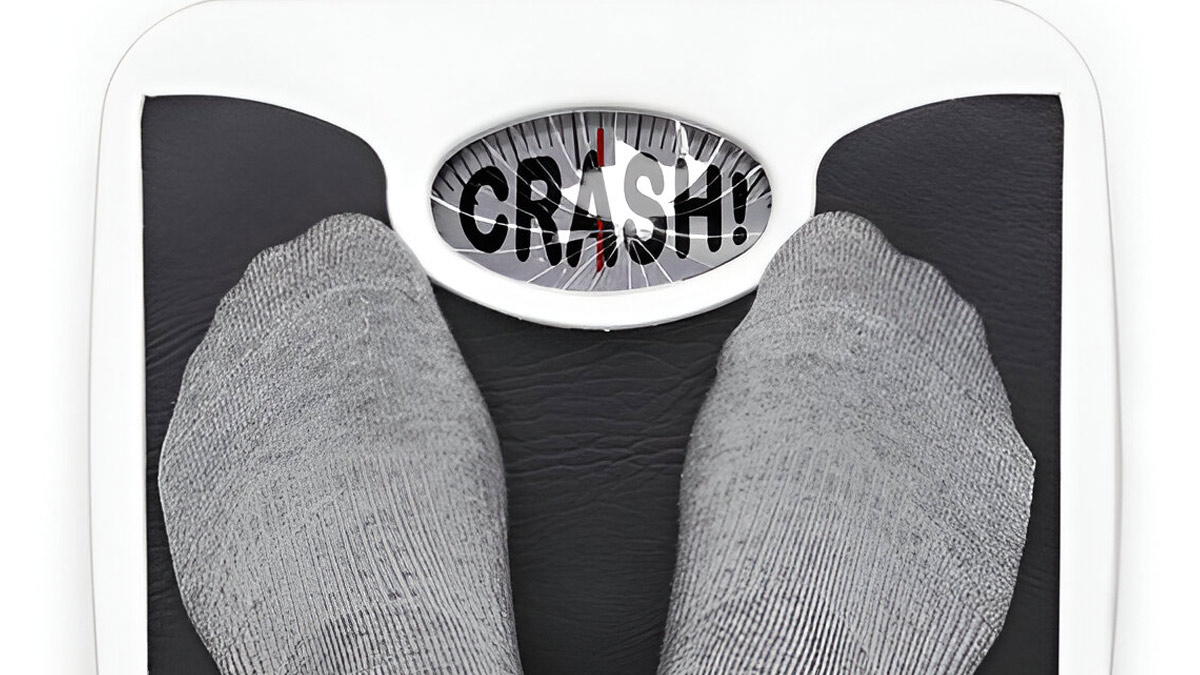
Weight reduction is one of the most prevalent health objectives at present. But in the zeal to get speedy outcomes, most individuals resort to severe diets or rigorous exercise programs that tend to do more harm than good. The reality is, lasting weight control is all about equilibrium, steadiness, and long-term changes—not short-term miracles.
Table of Content:-
We spoke to Dr Arulvanan Nandan, HOD - General Surgery, KIMS Hospitals, Thane, who explained how to start your weight loss journey safely and effectively without falling into the trap of crash diets or exhausting gym routines.
Why Crash Diets Don’t Work

"Crash diets guarantee weight loss in a short span, but things are quite different in reality. When you cut calories drastically or completely remove a food group, your body lacks the necessary nutrients. Not only does it leave you lethargic, but your metabolism rate also slows down, and weight loss becomes more difficult in the long term," said Dr Nandan.
Another problem? Weight regain. Most individuals who go on severe diets regain more weight when they return to regular eating. Rather than quick fixes, aim for small and ongoing modifications that your body can sustain long-term.
The Risk of Overdoing Exercise
"Spending a lot of time at the gym from day one may seem like commitment, but this usually leads to burnout, injuries, and demotivation. Working too hard with high-intensity workouts without conditioning causes your muscles and joints to ache, so you will be unmotivated to continue," added Dr Nandan.
Instead, start small and build up gradually. Select activities that you really enjoy—brisk walking, cycling, yoga, or even dancing. Target at least 30 minutes of exercise per day, and as your endurance levels enhance, you can intensify. Don't forget, frequency is more important than intensity in the initial phase. A comprehensive review of 149 studies demonstrated that the inclusion of exercise alone results in mean weight loss of 1.5-3.5 kg, and including exercise combined with diet contributes another ~1 kg compared to diet alone.
Simple Lifestyle Changes That Work
The foundation of healthy weight loss lies in your everyday habits. Here are some practical steps to get started:
- Reduce sugary beverages: Replace sodas and packaged juices with water or herbal tea.
- Keep away from processed food: Use fresh, whole foods instead of packaged snacks and read-to-eat meals.
- Take regular meals: Incorporate a lot of fruits, vegetables, lean proteins, and whole grains.
- Practice portion control: Eat small portions but don't deprive yourself.
- Try mindful eating: Slow down, savour your food, and attend to hunger and fullness cues.
Even small changes like these will make a real difference in the long run.
Don’t Ignore Sleep and Stress
Sleep and stress reduction are an important part of weight loss. Sleep deprivation interferes with hormones, such as leptin and ghrelin, which regulate hunger and fullness, usually resulting in greater food cravings for high-calorie foods.
Similarly, chronic stress has been known to cause emotional eating and increase levels of cortisol in the body, making weight loss more difficult. Adding relaxation techniques like meditation, deep breathing, or even a leisurely evening walk can ensure that stress remains at bay.
Set Realistic Goals and Stay Positive
One of the biggest mistakes people make is expecting drastic results overnight. Healthy weight loss takes time. Aim to lose 0.5 to 1 kg per week, which is considered safe and sustainable.
Acknowledge small achievements, no matter whether it is shedding your initial kilo, getting back into your old jeans, or simply being consistent with your exercise routine for a month. Those little victories make you enthusiastic to continue in the long term.
Bottomline
Dr Nandan concluded, “Weight loss is not a sprint—it’s a marathon. By focusing on sustainable habits instead of shortcuts, you’ll not only shed extra kilos but also improve your overall health and well-being. Avoid crash diets, don’t over-exert yourself at the gym, and remember: progress, not perfection, is the key. Start today with simple, realistic changes, and watch how consistency leads to lasting success.”
[Disclaimer: This article contains information provided by an expert and is for informational purposes only. Hence, we advise you to consult your professional if you are dealing with any health issue to avoid complications.]
How we keep this article up to date:
We work with experts and keep a close eye on the latest in health and wellness. Whenever there is a new research or helpful information, we update our articles with accurate and useful advice.
Current Version